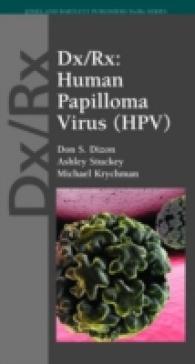- ホーム
- > 洋書
- > 英文書
- > Philosophy
Full Description
The problem of knowledge, as Aristotle commented in metaphysics, is inscribed in human nature. We all desire to know and understand our reality, the world and God who transcends it. From ancient times it has been a study that, linked to the mystery and complexity of human existence, has required multiple approaches. Furthermore, modern philosophy has given - we could say excessively - a central place to the problem of what can be known and how it is known. From this centrality, the development of German idealism and even existentialism, phenomenology, scientific positivism and analytical philosophy can be understood as a response to what has been presented with a totalizing character and that has opened new forms of address the problem of man's relationship with reality.
We live in a time where culture increasingly denies the truth and the very desire to seek it. Furthermore, we are confused by the diversity of approaches and what is true in the different areas of our existence and being in the world. Person and Knowledge acknowledges the importance of asking the questions that exist behind knowledge in its various modalities and aspects.
This book is an in-depth discussion between researchers which both enriches the respective visions and moves towards a more comprehensive understanding of human knowledge and its relationship with the human person.
Contents
Chapter 1. Human Cognition: Corporeal Living Things, Spiritual Intelligence and Our Personal Condition; José Ignacio Murillo
Chapter 2. Behind the Primacy of the System: Emotion in the Formation of the Sense of Self; Francisco Ceric and María del Carmen Tejada
Chapter 3. How do I know that I know myself? Towards a Phenomenology of Reflective and Pre-reflective (self)knowledge; Cristóbal Pacheco and Pablo Fossa
Chapter 4. From Empathy to Human Person: Knowledge of other as an Affirmation of Personal Community; Juan David Quiceno
Chapter 5. Objectivation and Knowledge of the other Person; Juan F. Franck
Chapter 6. Aesthetic Knowledge in Saint Thomas Aquinas; Tomás Salazar
Chapter 7. Towards a Moderately Naturalistic Moral Realism; Mariano Asla
Chapter 8. Knowledge and Free will; Fabrizio Renzi
Chapter 9. The Neoaristotelic Rationality: Possibilities and Challenges of a Moral Perspective; Maximiliano Loria
Chapter 10. How to bring truth and politics closer again? According to Saint Thomas Aquinas; Roger Miller








